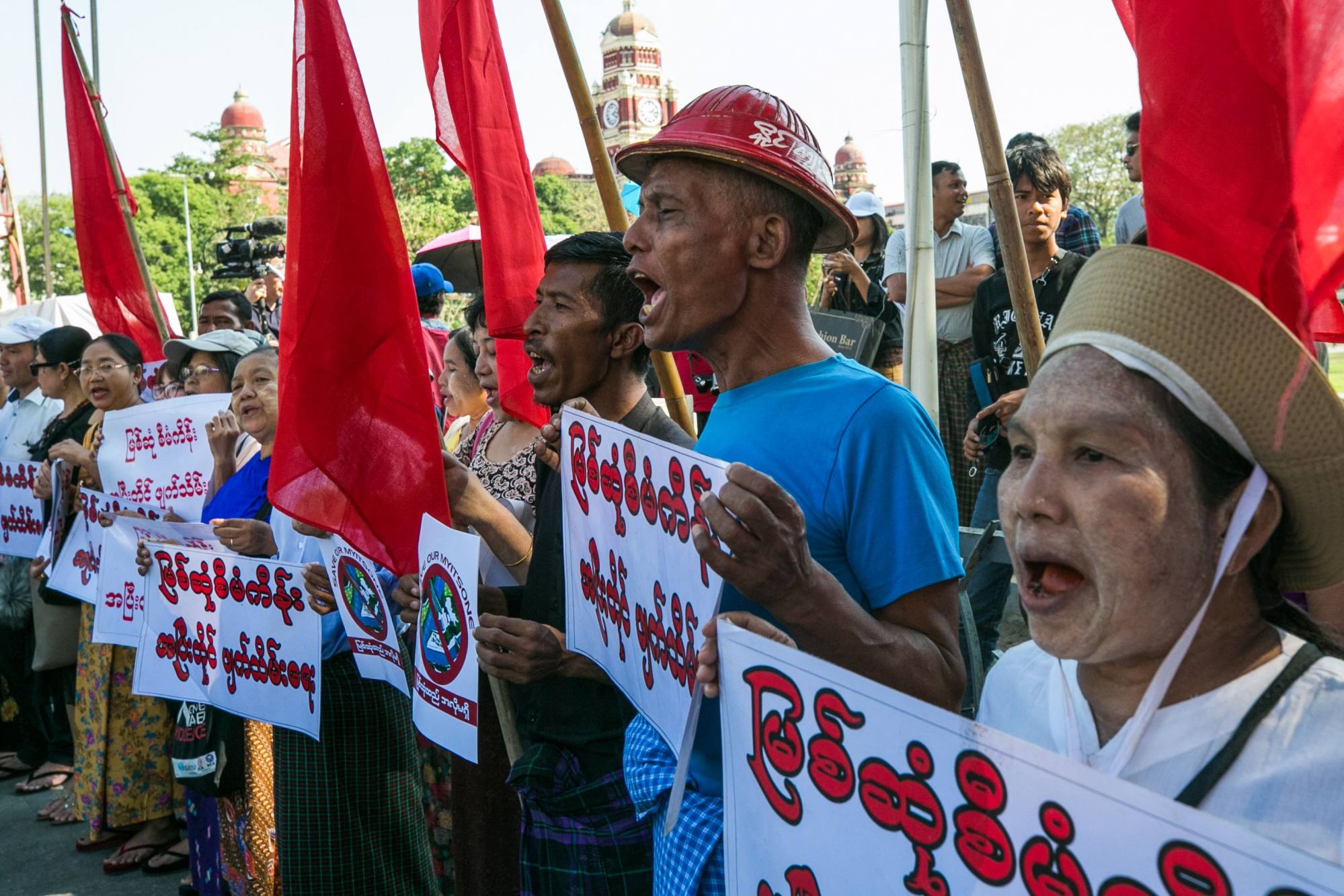
How China’s new complaints procedures can prevent ‘green’ ESG investments from harming local communities
- Guidelines now require Chinese banks and insurers to set up grievance mechanisms, which will allow affected communities to speak up – and investors to better address their risks
On June 1, Beijing issued green finance guidelines for Chinese financial institutions. Notably, Chinese banks and insurers are asked, for the first time, to establish grievance mechanisms to manage clients’ environmental, social and corporate governance (ESG) risks.
Increasingly, investors are adopting grievance mechanisms to help them understand the impact and prevent harm, as a response to the pressure to show ESG integrity, and because certain industry standards now require them.
The green finance guidelines issued by the China Banking and Insurance Regulatory Commission (CBIRC) are the latest to require grievance mechanisms that offer a channel for communities to be heard, and for investors to effectively address risks.
Most international development finance institutions have such mechanisms in place; 113 financial institutions receiving money from the Green Climate Fund are required to have them, and multiple impact management and measurement standards herald the importance of these mechanisms.

Recently, ANZ became the first commercial bank to set up a grievance mechanism for communities, after long and costly disputes arising from a project it financed in Cambodia.
While Chinese financial institutions do not have such mechanisms in place yet, the guidelines promise to put China ahead of the field in that no other state requires all its financial institutions, even those engaged in impact investment, to have grievance processes.
Grievance mechanisms are increasingly seen as a way to address unintentional environmental and social harm resulting from investments labelled as “green.” Of the more than 1,600 complaints filed through grievance mechanisms of development finance institutions, 506 alleged some type of environmental harm, and 53 claimed harm from investments specifically aimed at environmental protection.
We know from our work supporting communities seeking justice for harm caused by international finance, and advising development financiers and impact investors on how to better adhere to their ESG obligations, that green finance doesn’t always achieve its intended impact, and indeed can further harm the climate and environment.
What is green finance, and why is it important to China?
In part that is because too few green investors hear from and are accountable to local communities, the people who are best placed to know if an investment is off-track.
We see examples in all regions and across all types of investment: a hydropower investment in Nepal is displacing local communities, a conservation project in Myanmar risks displacing indigenous people and increasing the likelihood of illegal logging, and a biofuel investment in Liberia that led to deforestation.
Because those investors did not properly consult and respect the rights of local communities, they risked the success of their projects. However, in all those cases, investors had grievance redress mechanisms in place that provided opportunities for local communities to raise environmental and social issues and have the corresponding harm addressed.
To date, Chinese institutions have seen the increasing cost of not having adequate governance tools to engage communities to address their grievances. By the time decision-makers recognise local dissent, costs and reputational damage have occurred, leading to diminished financial returns and stranded assets.
The newly announced CBIRC green finance guidelines address this gap. If banks were to implement this grievance mechanism requirement in good faith, they would strengthen their risk management framework and better govern a swathe of financing that is currently unaccountable to local communities.
However, it remains unclear when and how this requirement will be implemented by each financial institution. The guidelines do not specify timelines, or whether this is considered part of the “green finance management systems and procedures” that must be established by June 2023, or how the mechanism should be designed.
Experiences from existing grievance and accountability mechanisms have shown that they can take different forms but, to be effective, they need to be in line with established international guidance, which requires grievance mechanisms to be predictable, transparent and fair. In this regard, the Chinese government has laid the groundwork.
The CBIRC and the China Banking Association have organised workshops over the past few years to discuss international experience of good practice, during which the Accountability Counsel shared the lessons from our work supporting community-led complaints, advocating for policy advancement and conducting research.
China should listen to those directly affected by belt and road projects
For the new tools to work, Chinese financiers should see the requirement to establish grievance mechanisms as an opportunity to ensure their investments meet stated ESG standards and are sustainable. And they need to act fast.
As many communities continue to voice concerns over Chinese-financed and operated projects, they will soon know which are committed to “green” investments. Investors who lag behind will be exposed to even higher risk, while their competitors are equipped with better ESG tools.
Margaux Day is policy director at Accountability Counsel, where Yaqian (Zelda) Liang is a consultant


